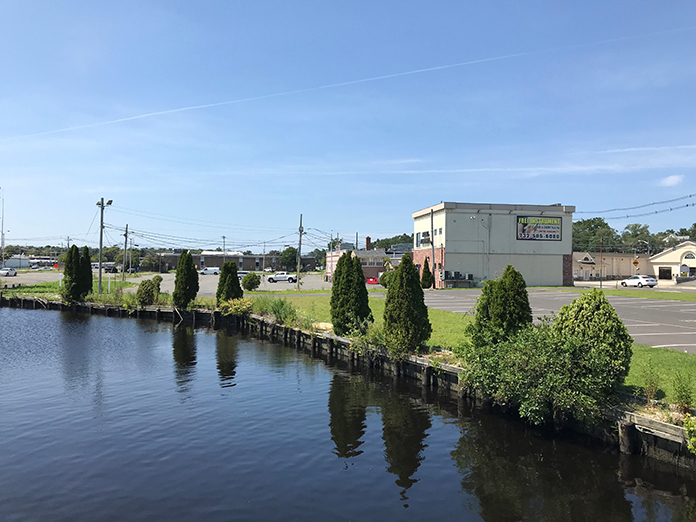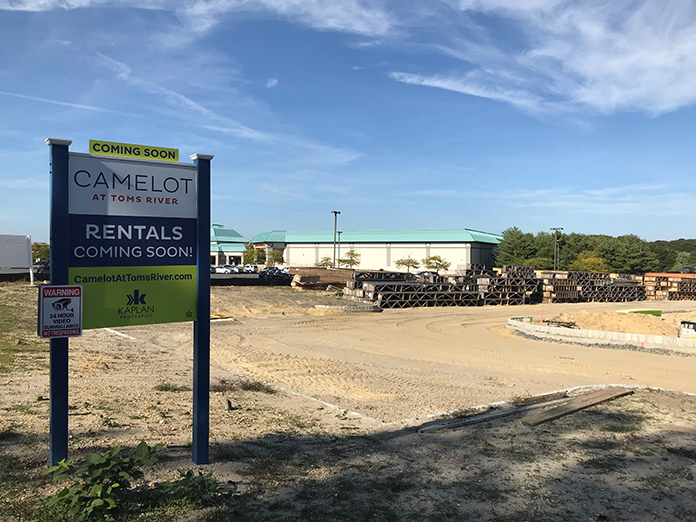
TOMS RIVER – One topic keeps coming up in some form or another at every meeting, every political mailer, and every Facebook page: development.
Residents complain about too many residential developments going into town, driving up school taxes and clogging roads. Meanwhile, the ease of buying everything online has led to a lot of brick and mortar stores closing.
On the ballot in November is more than just a choice for council. It’s a choice on whether you want to increase the open space tax rate by a penny.
Taxpayers currently pay 1.5 cents per $100 of equalized valuation. The valuation is not what the house was purchased for; this is the assessment of each property based on current market values.
For example, if your property is valued at $200,000, you are currently paying $30 per year toward the township’s Open Space Tax. Voters will decide whether to raise the tax by 1 cent to 2.5 cents per $100 of valuation.

By voting to increase the rate of the Open Space Tax, the township’s budget to purchase open space will increase.
The decisions on spending this open space money falls to the governing body. Each candidate was asked how they will promote commercial development while keeping residential development under control. Their answers are below.
The make-up of the governing body is currently five Republicans and two Democrats with a Republican mayor. Republicans have had a majority for many years. Council seats are four years.

In Ward 1
In Ward 1, Board of Education member Michele Williams, a Democrat, is competing against attorney and Lavallette police officer Justin Lamb, a Republican.
“Long range planning and zoning changes will allow us to keep residential development under control while continuing to grow commercial business populating in an industrial zone,” Williams said. “With all further development, we must adopt the mindset of smart/low impact development which takes into consideration environment, waterways, natural resources and primarily addresses stormwater management. Commercial development will take root and grow if we make it a priority. If we want business growth, we must invest in business. We must develop innovative programming to attract new businesses and explore grants for start-up funding.”
“The resident taxpayers of Ward 1 that I’ve spoken to are deeply troubled by the short-sighted urban sprawl unfolding around them,” Lamb said. “Proposals of high-density development is not what the taxpayers of Toms River want. Take a drive up Fischer Boulevard and you will notice several empty commercial spaces and I think the governing body needs to direct the effort to working with what we have. I intend to fight alongside Councilman Rodrick in preserving open space and maintaining the residential character of Ward 1.”

Ward 2
Republican incumbent Councilman Daniel Rodrick, a teacher, is being challenged by Democrat Jeff J. Horn, an attorney, in Ward 2.
“Residents are not interested in seeing any more development, residential or commercial,” Rodrick said. “We have enough empty storefronts around town, and there have been over 3,000 new units of housing built in the last five years. Residents are fed up with overdevelopment and so am I. As you know, I have consistently voted against more development and will continue to oppose the special deals that have enabled an explosion in high-density, residential housing.
“Mayor Hill recently gave a $3 million piece of property away to a developer to build two, 10-story apartment buildings, and they’re not going to pay school taxes for 30 years. I voted against this reckless plan,” he said. “If re-elected, I will continue to oppose Mayor Hill’s urbanization of Toms River and I will fight to preserve open space and the residential character of our neighborhoods.”
“I have visited the doors of over 1,000 voters in Ward 2. By far, the greatest concern is managing over-development and maintaining the residential nature of Toms River,” Horn said. “The genesis of this issue spans back at least 20 years. A huge opportunity was missed. Specifically, the prudent acquisition of surplus land and open space would have gone a long way to solving the problem, in advance. We would have paid pennies on the dollar.
“Now, we must play catch-up. We must invest in the acquisition of open space. Every dollar spent and every Council vote recorded must answer the question: How will this decision impact the residents of Toms River?
“Commercial development is desirable in the generation of tax ratables and improvement of the quality of life for residents. More dining, entertainment and shopping options can enhance the community. Thus far, local government has failed to instill confidence as prudent stewards of big projects. Leadership on these issues will require the highest level of due diligence and transparency,” he said.
Ward 3
RepublicanJames J. Quinlisk, a business owner, and Democrat Karin Sage, an attorney, are competing for Ward 3.
“Sensible zoning regulations direct commercial development into areas with the roads and infrastructure to support it, and ensure that residential development makes sense and fits into our existing neighborhoods,” Sage said. “Zoning regulations should be consistent with the Master Plan which takes into account density, open space, recreation and business development. We need to review the zoning regulations to ensure we are protecting our existing residential communities, and to the extent we are not, we need to modify the zoning regulations.
“In terms of promoting commercial development, there are numerous vacant storefronts throughout Toms River, that have remained vacant for years – this shouldn’t be. I would advocate for a program, similar to the one in Brick, which waives inspection and permit fees for business owners who, instead of building new, move into long-vacant storefronts. This would not only fill up the vacant storefronts, but would attract small businesses to Toms River, the result of which would be both good for the economy and good for Toms River,” she said.
“Allowing business to open and thrive in a community of about 100,000 is good for the businesses and good for the residents of our great town,” Quinlisk said. “Our population has grown by about 10% in the last decade and as a community we need places to shop, places to dine, and places for recreation. We also need places to work. Making it possible for new business to open here and our existing businesses the ability to grow, will increase the tax revenue to the town without raising property taxes for our home owners.
“I am in no way suggesting that ‘build, build, build’ is the answer. Smart growth with strategic planning will allow for both new businesses to open without tearing down all of our green space,” he said.

Ward 4
Democrat incumbent Councilman Terrance Turnbach, an attorney, is being challenged by Republican David J. Ciccozzi, a planning board member who works in property management, for Ward 4.
“The residents of Toms River, myself included, are absolutely tired of seeing acres and acres of woods being cleared out for development,” Turnbach said. “Residential and commercial development are projects that are approved by members of the Toms River Planning Board, not the Toms River Township Council. We need to appoint members of the Planning Board that are not pro development.
“Secondly, we have enough empty commercial storefronts in Toms River that should be focused on and filled before we ever consider new commercial development in wooded areas. In order to revive the empty storefronts, I would push for a Storefront Revitalization Program that waives all inspection and zoning fees for any commercial business looking to set up in Toms River in an empty or vacant existing commercial storefront. This will incentivize commercial businesses to come to Toms River while curbing any new development on property that will hopefully remain in its natural state,” he said.
“One of the best ways we can promote commercial development in Toms River is to ensure we keep our taxes in check, making us a more desirable location to own a business,” Ciccozzi said. “That’ll be my focus from day one. Additionally, no one moved to Toms River for dense housing, but rather for single-family homes and small-town feel. We should seek to preserve the character of our community, rather than reshape it with over overdevelopment.”







